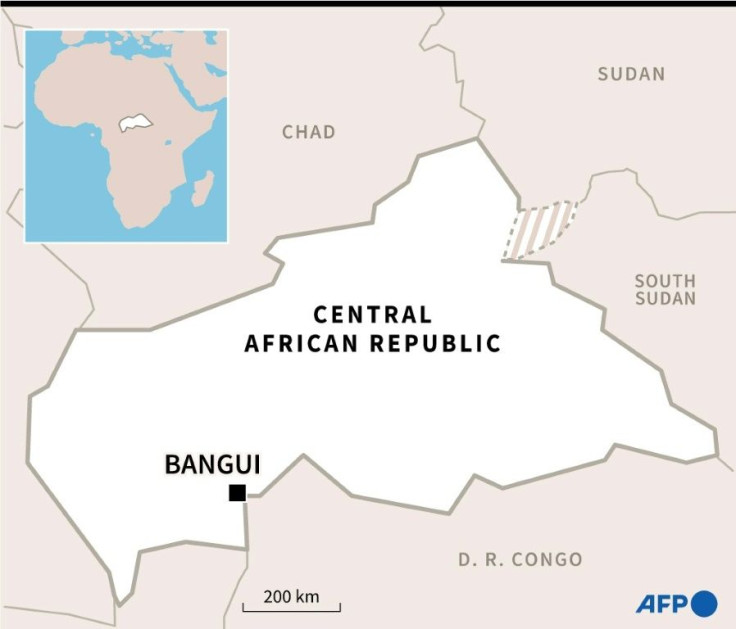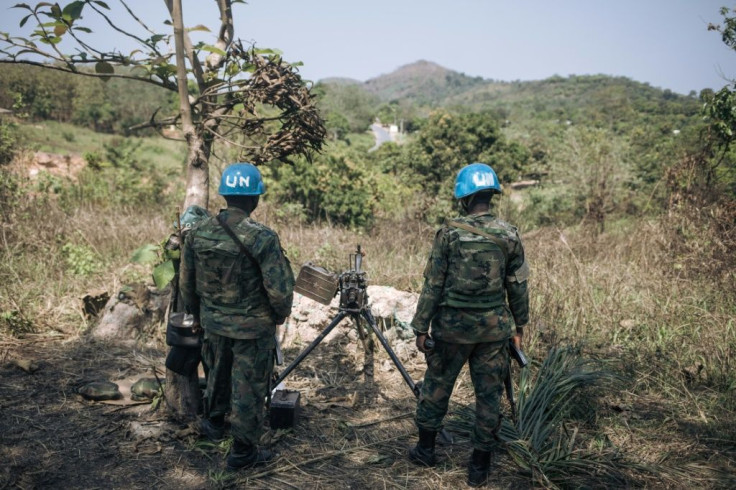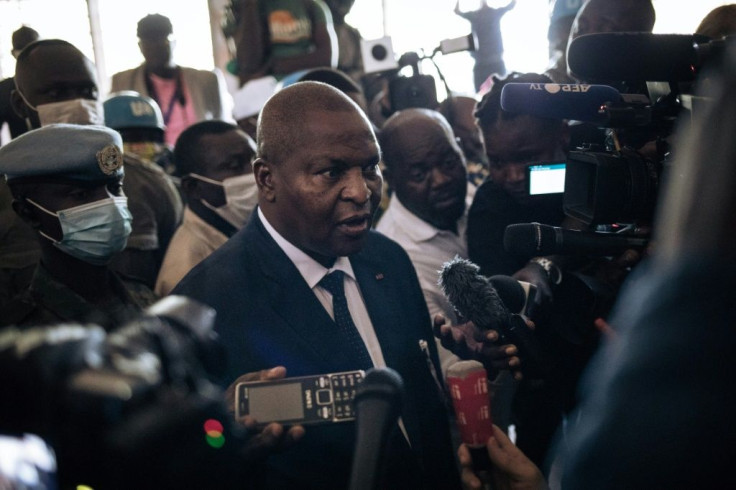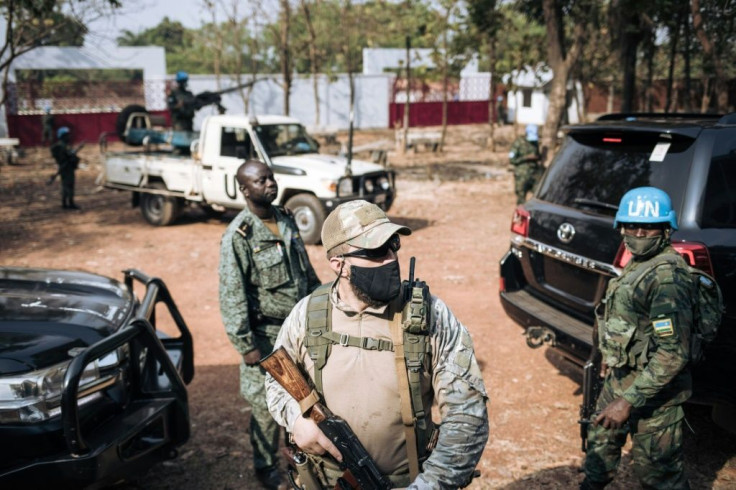Two UN Troops Killed In C. Africa As President's Re-election Confirmed
Rebels killed two peacekeepers in the Central African Republic on Monday, the UN mission MINUSCA said, hours after the top court confirmed President Faustin Archange Touadera's re-election in a December vote marred by low turnout.
The peacekeepers -- a Gabonese and a Moroccan -- were killed in an ambush on their convoy near the southern city of Bangassou, a city that the UN said at the weekend had been retaken from armed groups who had seized it two weeks earlier.
The attack, the latest in a series blamed on a coalition of armed groups that mounted a failed coup ahead of the December 27 vote, brought the number of MINUSCA troops killed since then to seven.

UN special envoy to CAR Mankeur Ndiaye said MINUSCA had paid a "heavy price" but remained committed to "pursuing its mandate to protect civilians and secure elections".
The coalition had tried to advance on the capital Bangui on December 19 in an operation that Touadera said was fomented by his predecessor, Francois Bozize.
Last Wednesday, the rebels mounted their closest attack yet to Bangui, striking near the city's outskirts before being pushed back with the loss of a peacekeeper.

They were thwarted by government and UN forces, as well as Russian paramilitaries and Rwandan troops under bilateral security pacts.
Earlier on Monday, the Constitutional Court's chief judge, Daniele Darlan, said Touadera clinched victory in the first round of the December election with 53.16 percent of the vote, trailed by former prime minister Anicet Georges Dologuele with 21.69 percent.
But Darlan said turnout was little more than a third, with many unable to vote because of the lack of security.
Toudera, 63, went on national television to appeal for national reconciliation.

"I reach out a patriotic hand to the democratic opposition so that our country can escape from the vicious cycle of violence and destruction," he said, vowing to work to "defuse the pre- and post-electoral political climate".
A technocrat with a background in mathematics, Toudera first took the helm in 2016 after a civil war that left thousands dead and displaced hundreds of thousands.

The Constitutional Court dismissed arguments that Touadera's election lacked legitimacy.
It rejected a suit filed by 13 of the 16 other candidates, who argued that his victory was the result of "massive fraud" and insecurity.
Although the court annulled or revised the results from certain polling stations because of irregularities, it said that "given the size of the gap in votes", the impact "could not have affected" the overall outcome.
"Part of the Central African people, who are at war, were prevented by acts of terror... and despite this, the people sent a strong and clear message to those who were terrorising them, to those who were telling them not to vote, and to the whole world," chief judge Darlan said, reading from a statement.
In a joint statement Monday, the African Union, the Economic Community of Central African States, the UN and the European Union noted the court's ruling.
The international organisations also condemned the recent violence, and urged all parties "to work together to create favorable conditions for the finalisation of the next stages of the electoral process".
But Nathalia Dukhan, a CAR specialist with the US anti-corruption organisation The Sentry, said the ballot lacked credibility.
"These elections are a democratic fiasco, unfolding before the eyes of the international community which observed the abuses one by one and legitimised them," she said.
Roland Marchal, of the International Research Centre (CER) think tank at France's Sciences Po university, said the Constitutional Court "again decided to be on the same side as the international community -- not blind to certain abuses but keen to avoid a cancellation of the vote".
The reaction in Bangui to Monday's announcement was muted.
The capital's streets were far quieter than usual, and many people said they feared rebel attacks.
Roughly 60,000 people have fled the violence since December, the UN High Commissioner for Refugees said on Friday.
On January 13 alone, 10,000 people crossed the Ubangui River, a tributary of the Congo, to seek shelter in the Democratic Republic of Congo.
© Copyright AFP {{Year}}. All rights reserved.





















